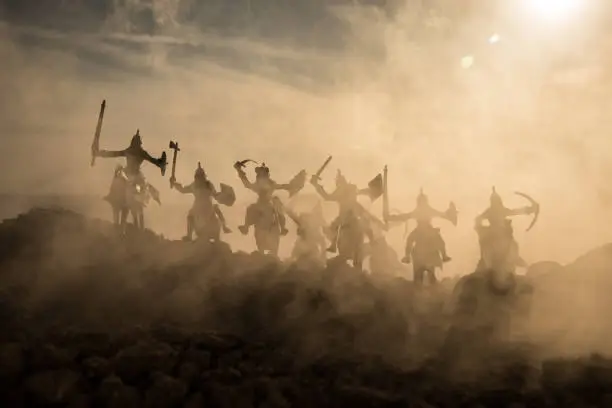Posted on 28th September, 2025 in Blog posts
Incomers seeking to take over, a struggle to keep the nation together and competing ideologies: it’s an old story.

Bernard Cornwell’s political landscape of 10th century Britain is depressing, except that we know things turned out well. In his WARRIOR CHRONICLES, Alfred the Great and his heirs want to unite the Saxon tribes into a country called England and rebuild the cities and towns built by the Romans and fallen into ruin. But the Saxons don’t build in stone, cannot repair the roads, bridges and sports arenas, let alone work out how to use the drainage systems or water viaducts. It’s not just because all the learning of their predecessors has been lost, interminable raids by savage Danes make life nasty, brutish and short. And the Celtic survivors harry them from north and west, for they know no other way of improving their living conditions than by thieving, and no other form of politics than killing.
Alfred wants an ideology around which his people can coalesce; charismatic leadership is not enough. The Danes and Celts have plenty of that. Alfred is promoting Christianity, aided by his priests who are as vicious with the Danes and heretics as are the Danes with the monks and nuns, whom they rape and crucify as a matter of duty to their Gods, Thor, Odin and co ltd.
Why did he not promote the Gods of the people who built those Roman marvels? Had they not proved their abilities, whereas all the Christian priests could do was offer the support of a God whom nobody could see and who never seemed to help out. Christianity had assets the Roman Gods didn’t have: it offered heaven to those who were obedient and provided secretariats of literate priests who could systemize administration and tax collection as no Danish war leader had ever managed to do.
The protagonist of the WARRIOR CHRONICLES is a Saxon raised by Danes to be the greatest warrior of his generation. Torn between two cultures, he fights for Alfred while predicting morosely the ultimate liquidation of the military society he loves: the Viking raiders. His women and even his sons are Christian, yet he still touches Thor’s hammer at his neck when he needs the supernatural and looks forward not to paradise but to Valhalla.

We know that the priests adapted many of the education, rituals and attitudes of ancient Rome as they spun the web which became the Catholic church. Over the Middle Ages, we re-learnt the skills lost and, thanks to monks and priests, rediscovered the ideas of the Greek and Roman savants as well as the Jewish religious leaders. We learnt to build once more and organize and legalise. From the contradictions between the message of Christ and the authoritarianism of the church that men built on top of him, there came the greatest religious movement of the European world – the Reformation – without which we could not have had the industrial or scientific revolutions, let alone democracy and human rights.
